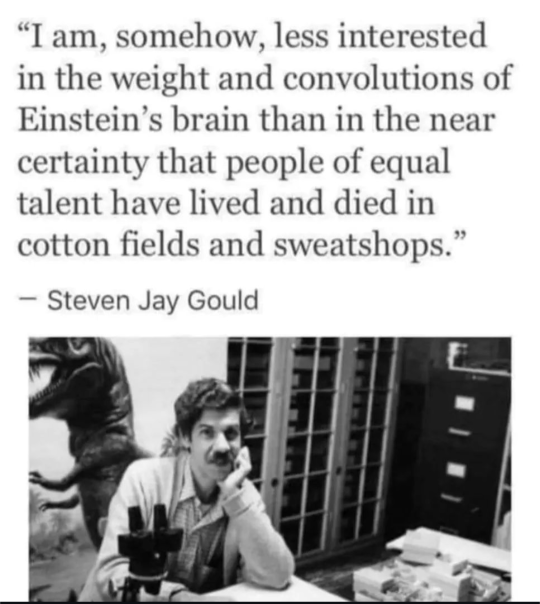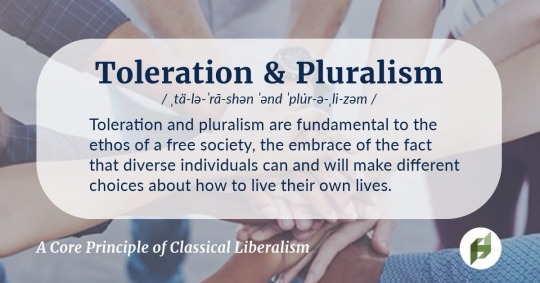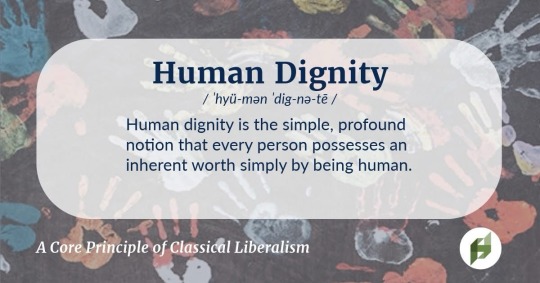#Human dignity
Explore tagged Tumblr posts
Text
Guys, the bombing, death, and hunger in Gaza today have reached an unbearable level. No food, no safety—just terror and the constant threat of death.
Please, donate anything you can and reblog.
@determinate-negation @littlegermanboy @brokenbackmolars @northgazaupdates2 @boudicca @finalgirldigital @fireyfobbitmedicine @heydreamcatcher-blog @ashwantsafreepalestine @queerstudiesnatural @bluebellsinthedells @rizzyluke @kordeliiius @self-hating-zionist @raelyn-dreams @unfortunatelyuncreative @licencetokrill-blog @jezebelgoldstone @ramelcandy @labutaquita-blog @sammywo @autistwithattitude-blog @tortiefrancis @sparklinpixiedust @feluka @revcuse @golvio @leftism @star-the-gremlin @space-ace-studies @applebunch @rainbowywitch @marscodes @annoyingloudmicrowavecultist @boyvander @the-bastard-king @ammonitetheseaserpent @girlinafairytale-blog @timetravellingkitty @applebunch @applejupiter @brutaliakent @malcriada @retvolution @deansmultitudes @devilofthepit
A Gazan’s gaze at a loaf of bread is like no other…
It’s not just a glance at food — it’s a glimpse of life pulled from the jaws of hunger, of dignity reclaimed from the ruins, of a long‑delayed hope that feels like a mother’s embrace calming a frightened child.
The world may see a loaf of bread as a commodity, aid, or a number in a report.
But here in #Gaza, a father sees a small victory over death, a mother sees the warmth of a table that has lost almost everything, and a family sees a fragile roof over a house with no walls.
Each loaf a child eats here is praised a hundred times over, because reaching it feels like surviving certain death, like pulling a life from under the rubble, like beating the flames of bombing and starvation for one more night.

This is the reality for my family, trying to survive one day at a time, one loaf at a time, one dream at a time, amid a siege, destruction, and a long, merciless war.
I have nothing to offer but this plea from the heart — for those who still value humanity, for those who can help.
Every donation, no matter how small, every word of support, every reblog can be a chance for life... a reminder that we are not abandoned.
Help us stand strong.
Help us survive.
Help us not be left alone under the rubble.
Vetted!!!
(#167 on the verified fundraiser list by el-shab-hussein and nabulsi) (but we had to make a new gfm campaign cuz our old organizer stopped contacting us).
# dlxxv-vetted-donations
#free gaza#free palestine#gaza genocide#gaza strip#gazaunderattack#save palestine#i stand with palestine#gazaunderfire#high support needs#basic needs#humanitarian aid#human dignity#hope for humanity#human rights#aid for gaza#gaza under siege#gaza#children#palestine aid#gaza fundraiser#palestine fundraiser#fundraiser
4K notes
·
View notes
Text

This is nothing radical. It's common sense.
2K notes
·
View notes
Text
The further men move from the Christian doctrine of the infinite value of every human soul, the more rapidly will they approach the Utopia of the humanist, in which the unfit and the incurables will be peacefully extinguished with all possible humanity by the most kindly of humanitarians.
Arnold Lunn (Peter Claver: A Saint in the Slave Trade, page 175)
150 notes
·
View notes
Text

Pope Leo XIV explains his choice of name:
"... I chose to take the name Leo XIV.
There are different reasons for this, but mainly because Pope Leo XIII, in his historic Encyclical Rerum Novarum, addressed the social question in the context of the first great industrial revolution.
In our own day, the Church offers to everyone the treasury of her social teaching in response to another industrial revolution and to developments in the field of artificial intelligence that pose new challenges for the defence of human dignity, justice and labour."
#habemus papam#pope leo XIV#vatican#st peter's basilica#st peter's square#Encyclical Rerum Novarum#pope leo XIII#human dignity#justice#labour#social justice#artificial intelligence#technology
55 notes
·
View notes
Text

Soldiers in the German Army can refuse orders that violate human dignity.
#Germany#Bundeswehr#military#orders#human dignity#ethics#Innere Führung#law#responsibility#disobedience
123 notes
·
View notes
Text
40 notes
·
View notes
Text

Say hi to this beautiful evil billy!🤭
#art#digital art#drawing#fanart#bill cipher#bill cipher fanart#gravity falls#gravity falls fanart#human dignity
41 notes
·
View notes
Text
Galatians 3:28
ουκ ένι Ιουδαίος ουδέ Έλλην There is neither Jew nor Greek
ουκ ένι δούλος ουδέ ελεύθερος there is neither bond nor free
ουκ ένι άρσεν και θήλυ there is neither male nor female:
πάντες γαρ υμείς εις εστέ εν Χριστώ Ιησού for ye are all one in Christ Jesus
#Galatians 3:28#christian#christianity#catholic#catholicism#human dignity#queer humanity#queer christian#genderqueer humanity#jesus#jesus christ#faith in jesus#jesus loves you#jesussaves#christian faith#bible#scripture#faith
16 notes
·
View notes
Text
Gaza is bleeding… and my family is struggling to survive.
We’ve lost our home, our safety, and the basic things we once took for granted.
Now, even finding flour, clean water, or painkillers feels impossible.
Everything is either gone or priced beyond our reach.
Children sleep hungry. The sick suffer without medicine. The markets are nearly empty — and what's left costs more than we can afford.
In these times, we need your help more than ever.
Your donation — even a few dollars — can mean everything.
It could be a loaf of bread, a bottle of water, a warm meal, or life-saving medicine for someone I love.
Please, if you can, donate.
And if you can’t, write a comment and reblog this post. That small act might reach someone who can make a difference.
We’re still here. We’re still holding on. We just need your help.
Vetted ! ! !
(#167 on the verified fundraiser list by el-shab-hussein and nabulsi) (but we had to make a new gfm campaign cuz our old organizer stopped contacting us).
# dlxxv-vetted-donations
#free gaza#free palestine#gaza genocide#gazaunderattack#gaza strip#i stand with palestine#save palestine#gazaunderfire#high support needs#basic needs#love#humanitarian aid#human dignity#hope for humanity#human rights#aid for gaza#gaza under siege#gaza#palistine#art on tumblr#children#queer#french#funny#football#food
5K notes
·
View notes
Text

25 notes
·
View notes
Text
The Philosophy of Dignity
The philosophy of dignity explores the inherent worth of individuals and the moral, political, and metaphysical implications of treating people with respect. Dignity is central to human rights discourse, ethics, and legal frameworks, and it raises deep questions about autonomy, recognition, and the nature of personhood.
Key Themes in the Philosophy of Dignity:
1. Inherent Worth
At its core, dignity is the idea that all human beings possess intrinsic value, not because of their achievements, status, or utility, but simply by virtue of being human. This belief underpins the Universal Declaration of Human Rights, which opens by affirming the “inherent dignity” of all members of the human family.
2. Kantian Moral Philosophy
Immanuel Kant is one of the most influential figures in the philosophy of dignity. He argued that human beings, as rational agents capable of moral judgment, must always be treated as ends in themselves and never merely as means. For Kant, dignity is grounded in autonomy—our capacity for self-governance according to moral law.
3. Dignity and Autonomy
Modern liberal philosophy often links dignity to individual autonomy. To respect someone's dignity is to respect their right to make choices about their own life. This principle informs debates on medical ethics, freedom of speech, and bodily autonomy.
4. Relational and Social Dignity
Contemporary thinkers like Axel Honneth and Martha Nussbaum expand dignity into the social sphere, arguing that people need recognition from others to fully realize their dignity. From this view, dignity is not only intrinsic but also shaped by how society treats individuals—especially marginalized groups.
5. Violations of Dignity
Philosophically, dignity is also understood through its negation: humiliation, degradation, torture, and discrimination all violate dignity by treating people as less than fully human. These violations justify moral outrage and legal protection.
6. Dignity and Equality
Dignity often intersects with egalitarian philosophy: if every person has equal dignity, then social systems must reflect justice, fairness, and non-discrimination. It challenges hierarchies and oppression by asserting a moral baseline of respect owed to all.
Summary:
The philosophy of dignity affirms the unconditional moral worth of individuals and calls for recognition, respect, and ethical treatment of all persons. Whether viewed through Kantian ethics, human rights, or social justice lenses, dignity functions as a foundational concept in moral and political philosophy, guiding how we relate to one another in both personal and institutional contexts.
#philosophy#epistemology#knowledge#learning#education#chatgpt#Human Dignity#Moral Philosophy#Ethics#Personhood#Respect#Rights and Responsibilities#Value Theory#Political Philosophy#Human Rights#Autonomy#Social Justice#Ethical Humanism#Inherent Worth#Justice#Equality
7 notes
·
View notes
Text
Every human person possesses an infinite dignity, inalienably grounded in his or her very being, which prevails in and beyond every circumstance, state, or situation the person may ever encounter. This principle, which is fully recognizable even by reason alone, underlies the primacy of the human person and the protection of human rights. In the light of Revelation, the Church resolutely reiterates and confirms the ontological dignity of the human person, created in the image and likeness of God and redeemed in Jesus Christ. From this truth, the Church draws the reasons for her commitment to the weak and those less endowed with power, always insisting on “the primacy of the human person and the defense of his or her dignity beyond every circumstance.”
Dignitas Infinita, paragraph 1
#catholicism#catholic church#pope francis#church document#dignitas infinita#human rights#human dignity
36 notes
·
View notes
Text

36 notes
·
View notes
Text
where are the people who are legitimately into
spirituality, witchcraft, and self actualization
as well as
socialism, landback, prison abolition etc?
who are ALSO
bipoc, queer, disabled and so forth?
those are the people i'm looking for
bonus points if you can help a brother out bc i have been seeking mutual aid for months on end
and i would like to stop asking for help
for a little bit
#mutual aid#socialism#spirituality#shadow work#self actualization#witchcraft#universal basic income#universal healthcare#compassion#land back#landback#prison abolition#trans#disabled#queer#bipoc#indigenous#voidpunk#intersex#philosophy#praxis#human rights#human dignity#interpersonal relationships
4 notes
·
View notes
Text


9 notes
·
View notes
Text
"Egoism is not to be condemned without qualification. Egoism is not a vice. Egoism gleams in the eye of an animal. Moralists bravely thunder against it, instead of building on it. What moralists try to deny is the great, inner citadel of human dignity. They want to make men tearful, sentimental, insipid, kindly creatures, asking to be made slaves. But to tear egoism from a man's heart is to rob him of his living principles, of the yeast and salt of his personality. Fortunately this is impossible."
'A Remarkable Decade', in Russian Thinkers, by Isaiah Berlin
17 notes
·
View notes